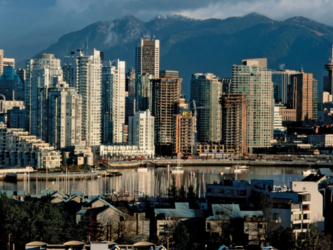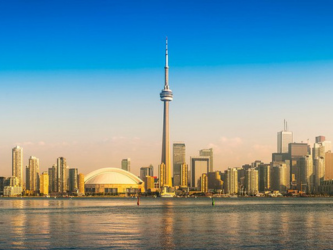Country Canada
Canada in Visa

Visitor Visa
Obtaining a Visitor Visa, or Temporary Resident Visa (TRV), is the common pathway for those planning to visit Canada for tourism, family visits, or business purposes.

Study Permit
For international students aspiring to pursue education in Canada, a Study Permit is essential. Before applying for this permit, individuals must secure acceptance from a designated learning institution in Canada.

Work Permit
Individuals planning to work in Canada need to obtain a Work Permit. The requirements for a Work Permit vary depending on factors such as the type of work, the employer, and the duration of the employment

Permanent Residence
Canada's Express Entry system is a points-based immigration system for those seeking permanent residence.
Qube Visa Solution Officials approvals for foreign citizens can vary by country.
Navigating the complexities of visa solutions is an intricate process, and approvals for foreign citizens can indeed vary significantly from one country to another. The discretion and criteria employed by Qube Visa Solution officials play a pivotal role in determining whether an individual's visa application will be approved.
The Start-up Visa Program is designed to attract entrepreneurs with innovative business ideas. To qualify, applicants must have the support of a designated organization, demonstrate their business meets specific criteria, and commit to actively managing the business.

This program is for individuals who have relevant experience in cultural activities, athletics, or farm management and can be self-employed in these fields in Canada.

Many provinces in Canada have entrepreneur or business immigration streams within their Provincial Nominee Programs. These programs vary by province and may require candidates to invest in or establish a business in that specific province.

Some provinces and territories offer investor immigration programs that require individuals to make a significant investment in the region. These programs are designed to stimulate economic development.

Canada provides various resources and support for small businesses and entrepreneurs, including mentorship programs, government grants, and loans.

Canada has trade and investment agreements with many countries, creating opportunities for international business collaboration. These agreements can facilitate the entry of foreign businesses into the Canadian market.

Depending on the industry, there may be specific programs or incentives for business development. For example, the technology sector in Canada, particularly in cities like Toronto and Vancouver, has seen significant growth.

The process of incorporating a business in Canada involves choosing a business structure (such as a corporation, partnership, or sole proprietorship), registering the business, and obtaining necessary permits and licenses.

Depending on your nationality, you may need a Tourist Visa (TRV) to enter Canada. Check the official website of the Government of Canada or the nearest Canadian embassy or consulate to determine whether you need a visa.

Citizens of visa-exempt countries (excluding U.S. citizens) may need to obtain an Electronic Travel Authorization (eTA) before boarding their flight to Canada. The eTA is electronically linked to your passport and is typically valid for multiple visits for up to five years.

Upon arrival in Canada, you will receive a Visitor Record at the port of entry, specifying the duration of your authorized stay. It's important to adhere to the conditions outlined in the Visitor Record.

While not mandatory, it is highly recommended to have travel health insurance that covers medical expenses during your stay in Canada, as healthcare can be expensive for non-residents.

Canada is renowned for its national parks and natural beauty. Consider visiting iconic attractions such as Banff National Park, Jasper National Park, Niagara Falls, and the Cabot Trail in Nova Scotia.

Explore the vibrant cities of Toronto, Vancouver, Montreal, and Quebec City, each offering a unique blend of cultural attractions, culinary experiences, and entertainment.

Canada experiences distinct seasons, so the activities and weather can vary. Winter offers opportunities for skiing and winter sports, while summer is great for outdoor activities and festivals.

Canada is a bilingual country with English and French as official languages. In most tourist areas, you'll find people who speak English, but it's also helpful to know some basic French phrases if you're visiting Quebec.

Apply For Quick Visa


Banff National Park


Vancouver, British Columbia


Quebec City, Quebec




















